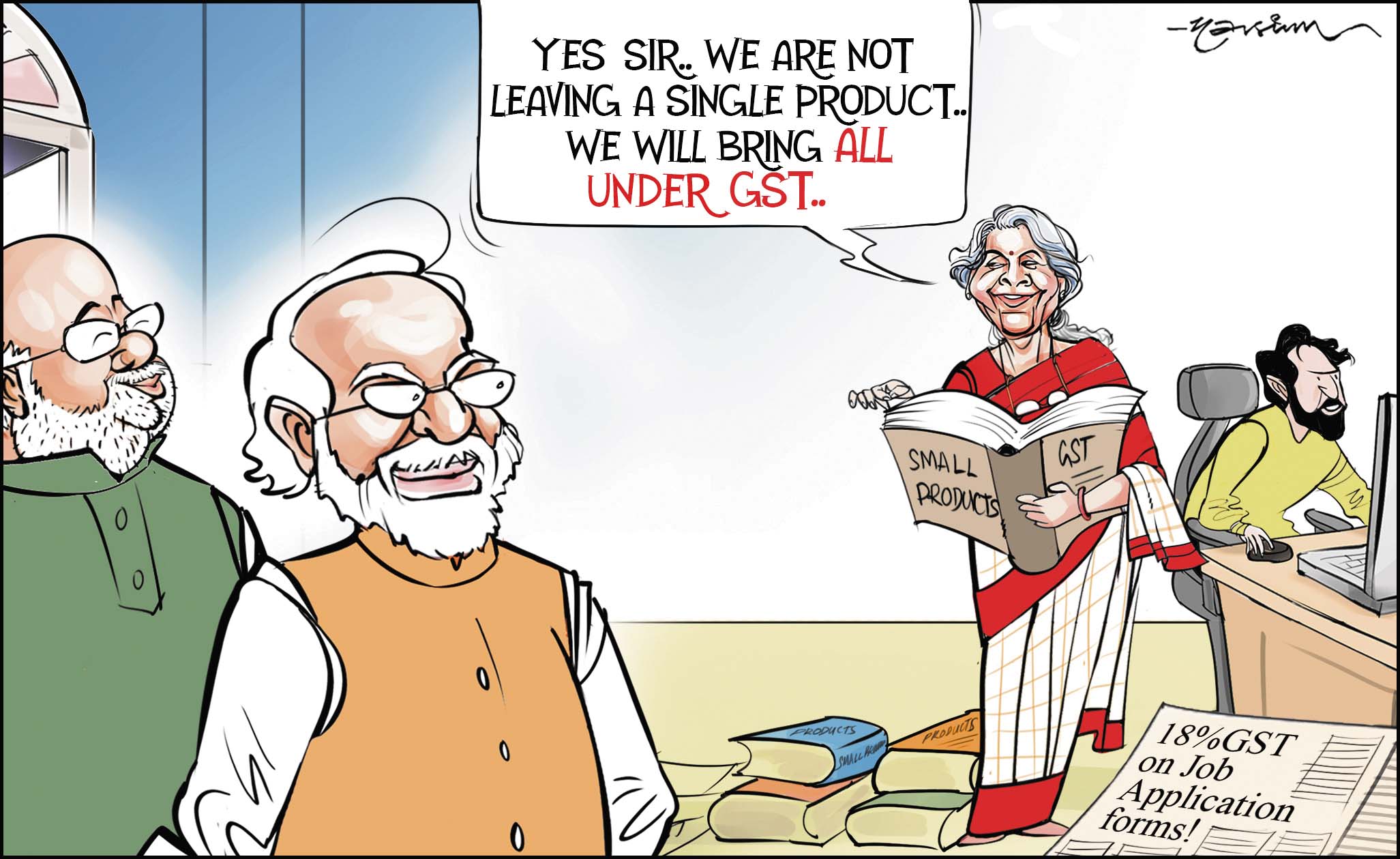Editorial: Fraudsters on the line
Cybersecurity agencies must remain ahead of the curve rather than playing catch-up

The rapid penetration of digital technologies in India has enabled millions of people to access myriad financial services including banking, payments and health but the flip side of it has been the massive surge in cyberfrauds. India now ranks among the largest victims and perpetrators of cyberfrauds worldwide. Victims, often unaware, suffer financial losses and damaged credit history. Cybercriminals use sophisticated technological tools to lure gullible people and rob their savings. In the first quarter of this year, people have lost over Rs 120 crore to a scam which has come to be known as ‘digital arrest’. The modus operandi here is dangerously simple: Fraudsters pretending to be police and customs officials make calls from locations resembling government offices or police stations. They contact their victims through phone calls and later switch to video through WhatsApp and Skype. They inform people that they are under investigation on grounds such as the seizure of their postal consignments carrying drugs. They are told to cough up money or face legal consequences, including arrest. Driven by panic, the gullible ones end up making the payment. The scammers force victims to stay on the call until they comply. Thousands of people have fallen victim to such scammers though there is nothing called digital arrest in law. Such is the seriousness of the problem that Prime Minister Narendra Modi made a mention of it during his monthly Mann Ki Baat radio address and cautioned citizens against this method of cyberfraud.
The Prime Minister’s appeal will hopefully encourage people to file complaints regarding any instance of cyberfrauds. Most victims prefer to stay silent because of a sense of shame associated with such experiences. Among common tactics employed include accusing the victim that illicit activity has been carried out using the individual’s Aadhaar number. Among the high-profile personalities who fell victim to cyberfrauds was Padma Bhushan awardee and Vardhman Group chairman SP Oswal. An inter-State gang of cybercriminals, who claimed to be CBI officers, duped the industrialist of Rs 7 crore. Kept under digital surveillance for two days, he was not allowed to call or text anyone. The fraudsters also orchestrated a fake Supreme Court hearing through a video call. If such an influential person was rendered helpless by scammers, one can well imagine the plight of commoners. Cybersecurity agencies must remain ahead of the curve rather than playing catch-up. According to one estimate, people in India are losing nearly Rs 1.5 lakh to cybercriminals every minute. The growing sophistication of technologies makes cybercriminals try out new methods to defraud people. Thus, there is a dire need for people to be vigilant — especially the elderly, who are not very tech-savvy. With the PM himself flagging the issue, public awareness about it is bound to increase.
Related News
-
Save future of Telangana NEET PG aspirants, IMA writes to CM Revanth Reddy
40 mins ago -
Telangana techie loses Rs 4.15 lakh to online gold trading fraud
1 hour ago -
Hyderabad: Couple working as house help at doctor’s residence held for theft
1 hour ago -
Hyderabad auto driver foils attempt to kidnap young woman, five held
2 hours ago -
Haiti gang attack on journalists covering hospital reopening leaves 2 dead, several wounded
3 hours ago -
21 dead as Mozambique erupts in violence after election court ruling
4 hours ago -
Sandhya Theatre stampede case: Allu Arjun questioned for 3 hours by Chikkadpallly police
12 hours ago -
Telangana: TRSMA pitches for 15% school fee hike and Right to Fee Collection Act
12 hours ago




